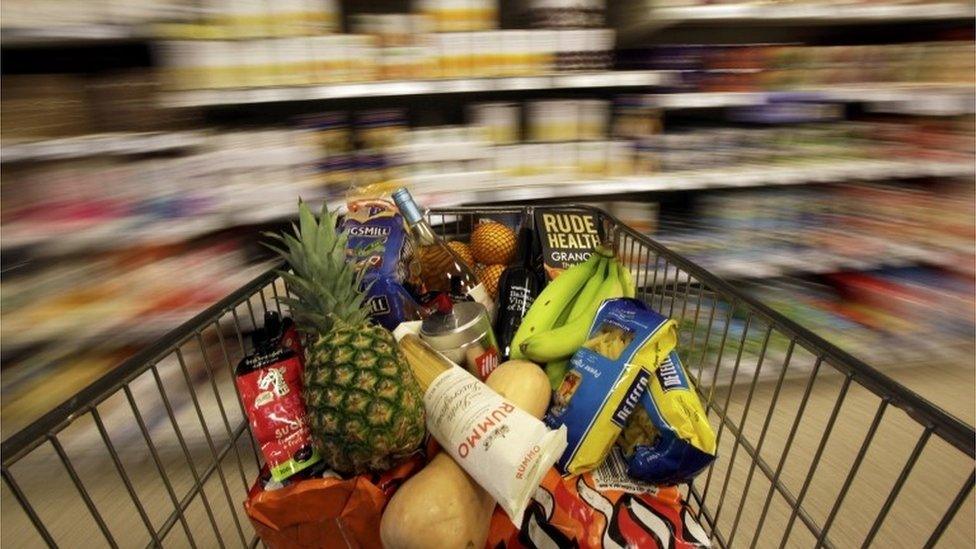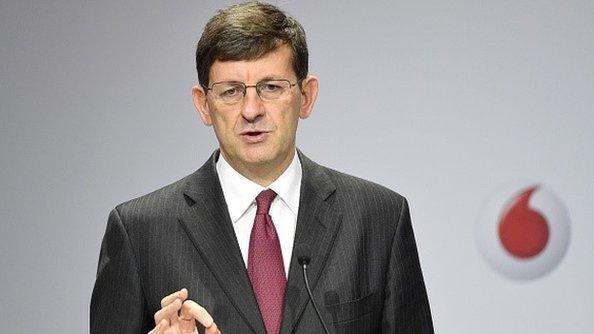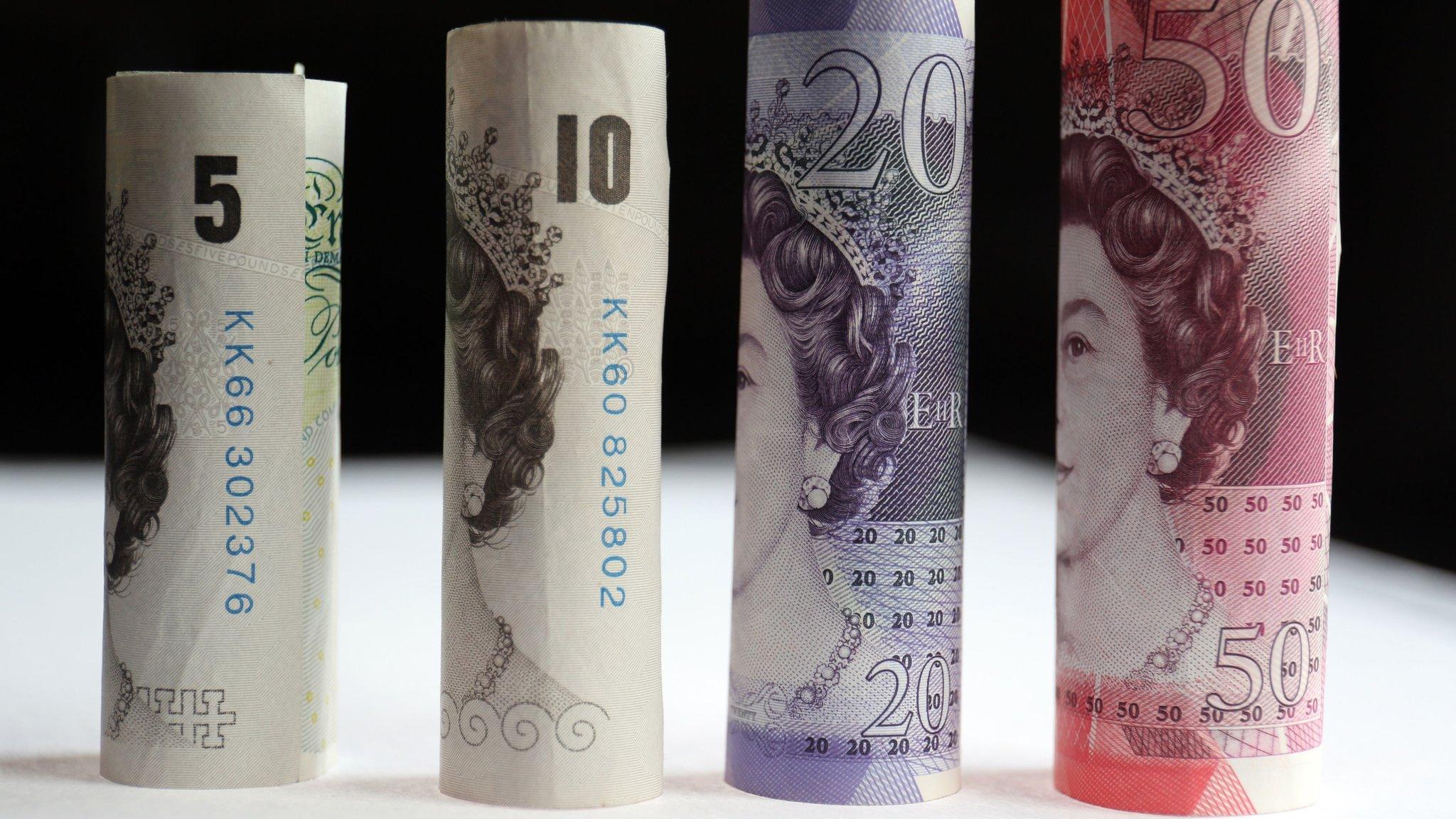Brexit would mean higher food prices, warn former retail bosses
- Published

The former retail bosses said the UK's exit from the European Union would be "catastrophic for ordinary families"
The price of everyday essentials such as food, drink and clothing would rise if the UK votes to leave the EU, former retail bosses have warned.
The ex-chief executives, who previously ran Tesco, Sainsbury's, Asda, Morrisons, M&S and B&Q, said a drop in the pound coupled with supply chain disruption would cause prices to spike.
The average household could be £580 a year worse off as a result, retail union USDAW has predicted.
Vote Leave rejected the claims.
"Independent experts are clear, EU membership and the meddling court that comes with it have put up prices and hurt our economic growth," said Vote Leave chief executive Matthew Elliott.
"The EU is costly, bureaucratic and blind to the impact it has had on people's wages and soaring energy bills."
But the retail bosses, which include former Marks and Spencer boss Marc Bolland and former Sainsbury's chief executive Justin King, insisted that a UK exit from the European Union would be "catastrophic for millions of ordinary families".
USDAW said it had calculated its £580 figure based on an expected fall in sterling in the event of the UK's exit from the EU, together with expected new tariffs imposed on imported EU goods including food, drink and clothing.
The former bosses of Tesco, M&S, Sainsbury's and B&Q already warned last month that prices would rise amid a so-called Brexit, but their ranks have swelled with the addition of the ex-chief executives of Asda and Morrisons.
Richard Lloyd, former executive director of consumer group Which?, said he was now "convinced that leaving the EU will give ordinary British families a worse deal for years to come".
"My advice to consumers is clear - this could be an expensive mistake, don't risk it," he said.
Tough competition from discount rivals together with low inflation means that overall the prices of groceries has steadily fallen.
According to consumer research firm Kantar Worldpanel the price of groceries has fallen every month since September 2014, with the average household now spending £78.10 a week in the supermarket.
- Published21 June 2016

- Published21 June 2016

- Published21 June 2016
- Published20 June 2016
